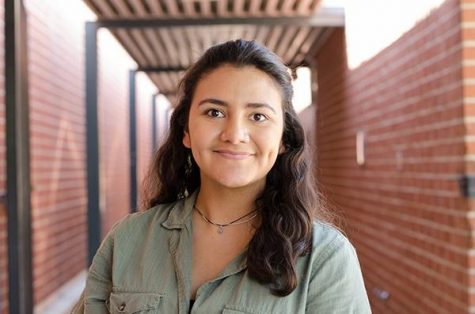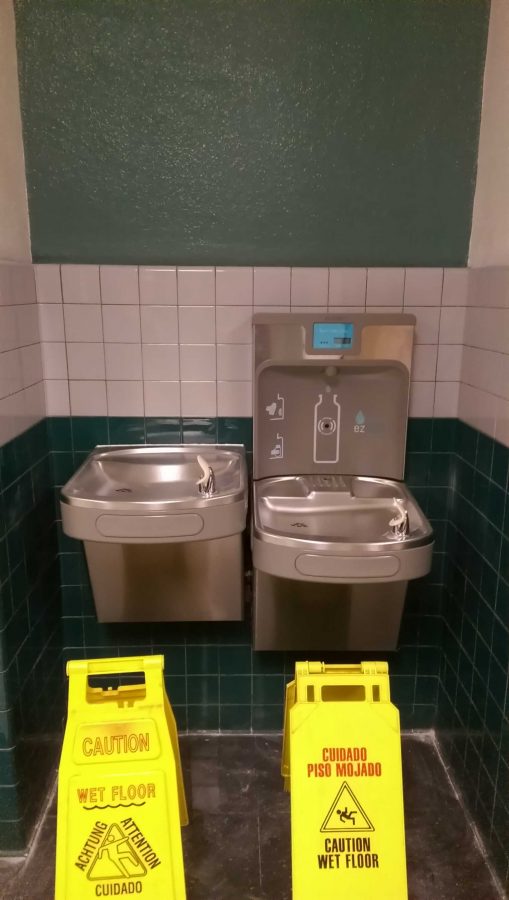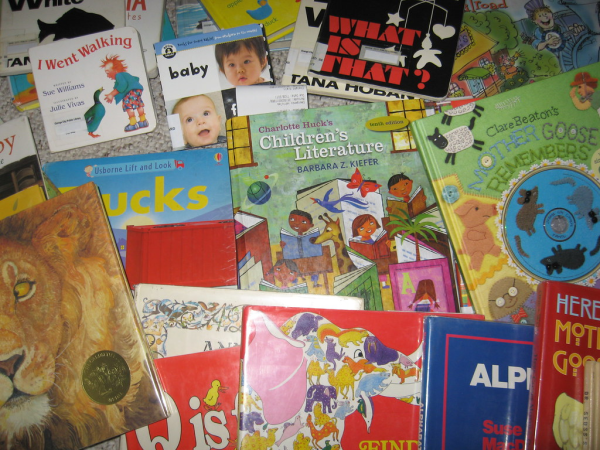Reusable water bottle stations to be added to Clark campus
The Elkay Station by the office entrance.
According to EcoWatch, more than 46,000 pieces of plastic cover the ocean’s surface per square mile creating 90 percent of all ocean trash. In order to to reduce the use of such plastic, one of five Clark teams for the Lexus Eco Challenge, the Eco Squad, have implemented Elkay’s reusable water bottle stations with filters.
The Eco Squad consists of junior Leon Arapi, and seniors John Bandek, Michelle Hernandez Karina Khachaturova, Arineh Moradian, Demetrio Rebollo and Deroo Vasghanian. Based on tests developed by the team, they estimated 24,000 water bottles are thrown away (not recycled) at Clark annually. This inspired them to introduce the first-ever refillable bottle station within our school district.
The team used the previous year’s’ funds in order to pay for the $2,500 station which includes features like a filter status and bottles saved count. GUSD workers began adding the eco-friendly station by the bathrooms near the main office on Oct. 18, and the fountain is now accessible to staff and students.
After running some tests, Bandek says the pH level of the former fountain’s water was 6, and he noted that some water fountains released yellow water. “Although our initial intention is to reduce the use of plastic water bottles on campus, this project will also provide the school with the first filtered and cooled water fountain that is accessible to all students,” Bandek said.
Students in science teacher Dominique Evans-Bye’s Environmental GIS class annually participate in the Lexus Eco Challenge, where student-led teams identify environmental issues related to land, water, air, and climate and create solutions for these problems while competing for the grand prize of $500,000 in scholarships and grants.
Evans-Bye oversees the team’s project, and she said that she looks forward to the Eco Squad’s attempts to eliminate plastic waste at the school. “Communication is the hardest part the teams face during the Lexus Eco Challenge; they have to be able to communicate in different ways in order to work cohesively, and it has to be done in a short amount of time,” she said.
The school district and school administration approved this project earlier this month. “The team and I truly appreciate Mrs. Lockhart’s help with all this because she guided us throughout the whole process,” Hernandez said. “She helped us with contacting the district and answered any questions we had.”
After installation, the group will launch fundraisers to get another station, hopefully near the gym. One on-going fundraiser the Eco Squad has is a DonorsChoose campaign to fundraise for refillable bottles in order to promote an environmentally friendly school.
If this project receives positive feedback, the Eco Squad looks forward to introducing these stations in other schools within the district. Photography teacher Greg Zamlich said that he is amazed by the Eco Squad’s efforts and believes it will have a positive impact on the student body. “I drink a lot of water, so having this unit so close to my classroom is great,” Zamlich said. “However, my only complaint is that it takes a long time to fill a bottle, so that could create a long line of waiting students.”

Hobbies/Interests: Tear exertion, slumber, dreaming of going to the gym
Favorite Movie: The Lion King
Favorite Food: Chow Mein
Plans for the future: writing...










